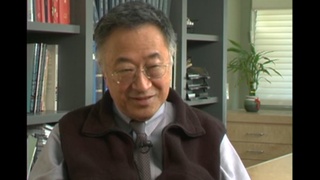Interviews
Criteria for who gets redress
Our criteria for redress, at that time, was if you were in camp—because camp has a roster of everybody that was there—we use that roster and they would all be eligible for redress. Of course we got some criticism from people who were not in camp, like from eastern Washington, eastern Oregon, they did not go into camp. Like in California it was the same thing, the military zone number one was the western half of the states, and the eastern half was a military zone number two. In California, as you know, both [military zones] had to go into camp. And because of that they said in Washington they were all ready. They were told to be ready, so they got rid of their properties, and had suitcases packed and ready. But the final order never came.
Date: July 1-2, 1998
Location: California, US
Interviewer: Mitchell Maki, Darcie Iki
Contributed by: Watase Media Arts Center, Japanese American National Museum









